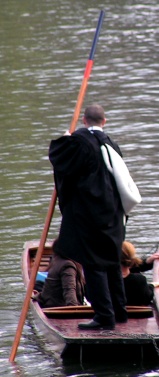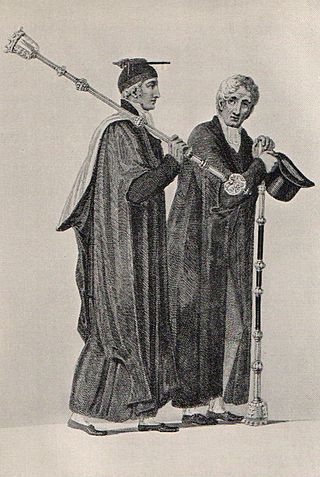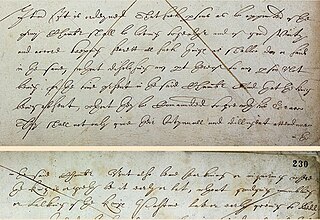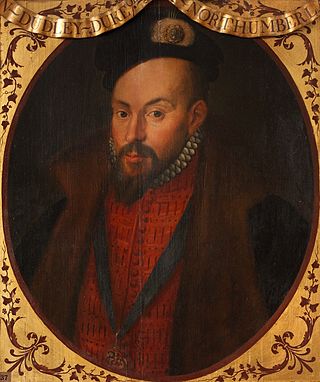
An Esquire Bedell is a junior ceremonial officer of a university, usually with official duties relating to the conduct of ceremonies for the conferment of degrees. The word is closely related to the archaic bedel and modern English beadle .

An Esquire Bedell is a junior ceremonial officer of a university, usually with official duties relating to the conduct of ceremonies for the conferment of degrees. The word is closely related to the archaic bedel and modern English beadle .
The University of Cambridge historically had a beadle (usher) assisting with official ceremonies as well as being an administrative assistant of the chancellor and the proctors. The title of Gentleman Bedell, similar in status to a Gentleman Usher, was in use by 1392. The title Esquire Bedell was first used in 1473 and formally recognised in the university statutes by Edward VI in 1549. [1]
The principal bedell was assisted in both administrative and ceremonial duties by a secondary or sub-bedell. By the 15th century this position was given the somewhat demeaning title of "inferior bedell", but granted the title of Yeoman Bedell by Edward VI in 1549. [1] Yeomen at the time were often constables and bailiffs. A Yeoman Bedell performed similar duties at the university, including collecting fines at the time when universities had their own jurisdiction over students. The Yeoman Bedell could also perform the duties of a crier.
Esquires Bedell are primarily[ clarification needed ] associated with universities in the United Kingdom.
In Australia, the Australian National University, the University of Melbourne, the University of Sydney, the University of New England, Monash University and others retain the position of Esquire Bedell, sometimes assisted by a Yeoman Bedell. These are largely administrative positions, although performing the traditional duties of a bedell for graduation ceremonies.
In New Zealand, the University of Auckland has Esquires Bedell.

The Most Noble Order of the Garter is an order of chivalry founded by Edward III of England in 1348. The most senior order of knighthood in the British honours system, it is decoration outranked in precedence only by the Victoria Cross and the George Cross. The Order of the Garter is dedicated to the image and arms of Saint George, England's patron saint.

The King's Body Guard of the Yeomen of the Guard is a bodyguard of the British monarch. The oldest British military corps still in existence, it was created by King Henry VII in 1485 after the Battle of Bosworth Field.

The usher of the Black Rod is an official in the parliaments of several countries of the Commonwealth of Nations. The title is often shortened to Black Rod, and in some countries, formally known as Gentleman Usher of the Black Rod if male, or Lady Usher of the Black Rod if female. The position originates in the House of Lords in the Parliament of the United Kingdom. Equivalent positions also exist in Australia, Canada and New Zealand.
A serjeant-at-arms, or sergeant-at-arms, is an officer appointed by a deliberative body, usually a legislature, to keep order during its meetings. The word "serjeant" is derived from the Latin serviens, which means "servant". Historically, serjeants-at-arms were armed men retained by English lords and monarchs, and the ceremonial maces which they are associated with were originally a type of weapon.

A verger is a person, usually a layperson, who assists in the ordering of religious services, particularly in Anglican churches.

The University of Cambridge has a long tradition of academic dress, which it traditionally refers to as academical dress. Almost every degree which is awarded by the University has its own distinct gown in addition to having its own hood. Undergraduates wear college gowns, which are all subtly different; these differences enable the wearer's college to be determined. Academic dress is worn quite often in Cambridge on formal, and sometimes informal, occasions, and there are a number of rules and customs governing when and how it is worn. Black gowns (undress) are worn at less formal events, while on special occasions full academical dress is worn, consisting of gown, hood and headdress with Doctors in festal dress. The University's officials also have ancient forms of academic dress, unique to the University.

A beadle, sometimes spelled bedel, is an official who may usher, keep order, make reports, and assist in religious functions; or a minor official who carries out various civil, educational or ceremonial duties on the manor.

The bedel was, and is to some extent still, an administrative official at universities in several European countries, and often had a policiary function at the time when universities had their own jurisdiction over students.
A papal gentleman, also called a Gentleman of His Holiness, is a lay attendant of the pope and his papal household in Vatican City. Papal gentlemen serve in the Apostolic Palace near St. Peter's Basilica in ceremonial positions, such as escorting dignitaries during state visits and other important occasions. It is a local name for the old court position of valet de chambre. To be appointed is an honor. The appointee is an unpaid volunteer.
A precentor is a person who helps facilitate worship. The details vary depending on the religion, denomination, and era in question. The Latin derivation is præcentor, from cantor, meaning "the one who sings before".
Bedell may refer to:
A chancellor is a leader of a college or university, usually either the executive or ceremonial head of the university or of a university campus within a university system.
Gentleman Usher and Lady Usher are titles for some officers of the Royal Household of the United Kingdom. For a list of office-holders from the Restoration of the monarchy in 1660 up to the present day see List of Lady and Gentleman Ushers.

A mace-bearer, or macebearer, is a person who carries a mace, either a real weapon or ceremonial.

A privy chamber was the private apartment of a royal residence in England.
Sir John Norreys or Norris was a gentleman usher daily waiter at the English court during the reign of the House of Tudor. He is thought to be the author of a treatise describing the roles of servants of the chamber.
A bedel is an administrative official at universities in several European countries.

The Yeomen Warders of His Majesty's Royal Palace and Fortress the Tower of London, and Members of the Sovereign's Body Guard of the Yeoman Guard Extraordinary, popularly known as the Beefeaters, are ceremonial guardians of the Tower of London. In principle they are responsible for looking after any prisoners in the Tower and safeguarding the British crown jewels. They have also conducted guided tours of the Tower since the Victorian era.
A clerk is a senior official of many municipal governments in the English-speaking world. In some communities, including most in the United States, the position is elected, but in many others, the clerk is appointed to their post. In the UK, a town or parish clerk is appointed by the town or parish council members. In almost all cases, the actual title of the clerk reflects the type of municipality they work for; thus, instead of simply being known as the clerk, the position is generally referred to as the town clerk, township clerk, city clerk, village clerk, borough clerk, board secretary, or county clerk. Other titles also exist, such as recorder and corporate officer. The office has existed for centuries, though in some places it is now being merged with other positions.

An Esquire of the Body was a personal attendant and courtier to the Kings of England during the Late Middle Ages and the early modern period. The Knight of the Body was a related position, apparently sometimes merely an "Esquire" who had been knighted, as many were. The distinction between the two roles is not entirely clear, and probably shifted over time. The positions also existed in some lesser courts, such as that of the Prince of Wales.